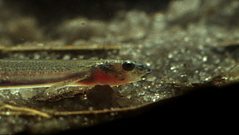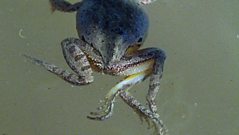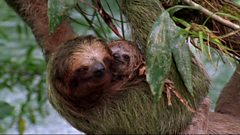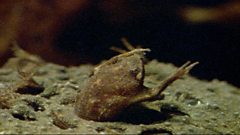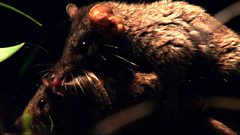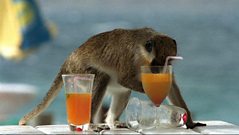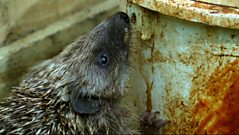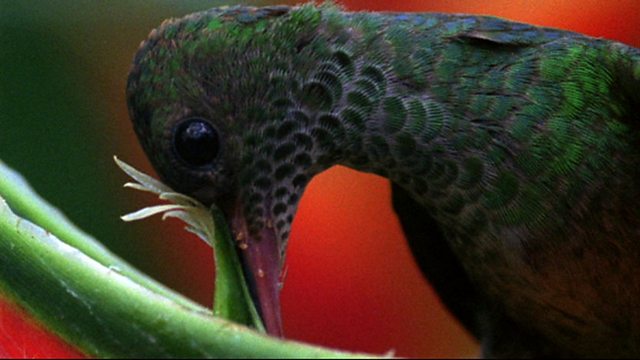
Nosey stowaways
A rufous-tailed hummingbird feeds on the flowers of the heliconia plant, which also provides food for flower mites. When a bird delves its beak into the bloom to get the nectar, the mites race on board. Size for size, they are as quick as a sprinting cheetah. They rely solely on the hummingbird to take them to fresh blooms, stowing away in the bird's nostrils. Up to a dozen mites may cram into these small flight compartments. They only disembark when they reach their favoured destination and each type of mite alights at its own favourite flower. These mites do little harm to the bird, but by blocking the nostrils they reduce flight efficiency and they compete for pollen and nectar. They have started to act like parasites.
Duration:
This clip is from
Featured in...
![]()
大象传媒 Nature
Be captivated, informed and inspired by the world's wildlife.
More clips from Puzzling Partners
-
![]()
Hanging on
Duration: 01:35
-
![]()
Parasite lifecycle
Duration: 01:50
-
![]()
Moths and sloths
Duration: 01:51
-
![]()
Fishing with dolphins
Duration: 02:20
More clips from Weird Nature
-
![]()
Skincare—Bizarre Breeding
Duration: 01:01
-
![]()
Dying for sex—Bizarre Breeding
Duration: 01:43
-
![]()
Happy hour—Peculiar Potions
Duration: 03:07
-
![]()
A liking for licking—Peculiar Potions
Duration: 01:28


